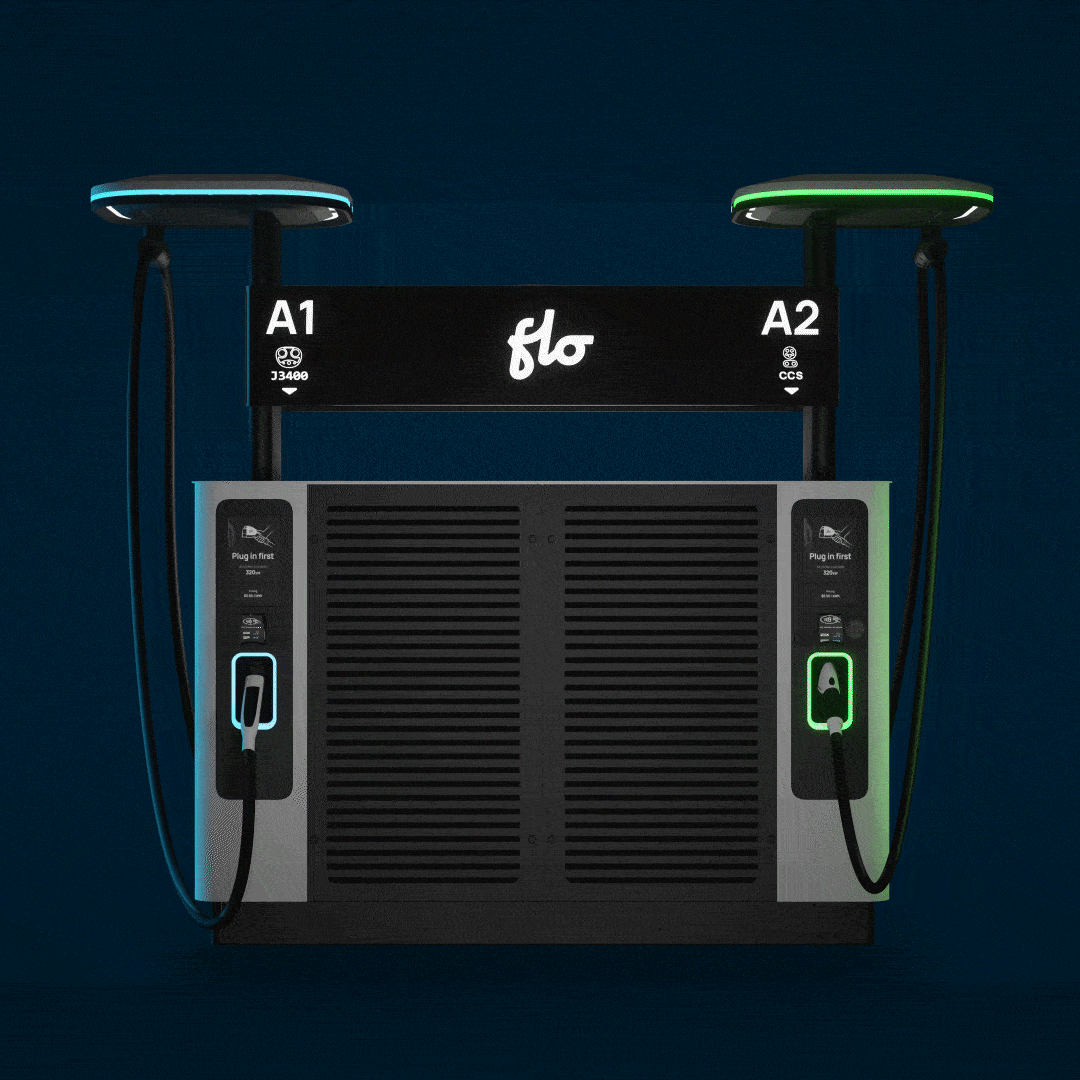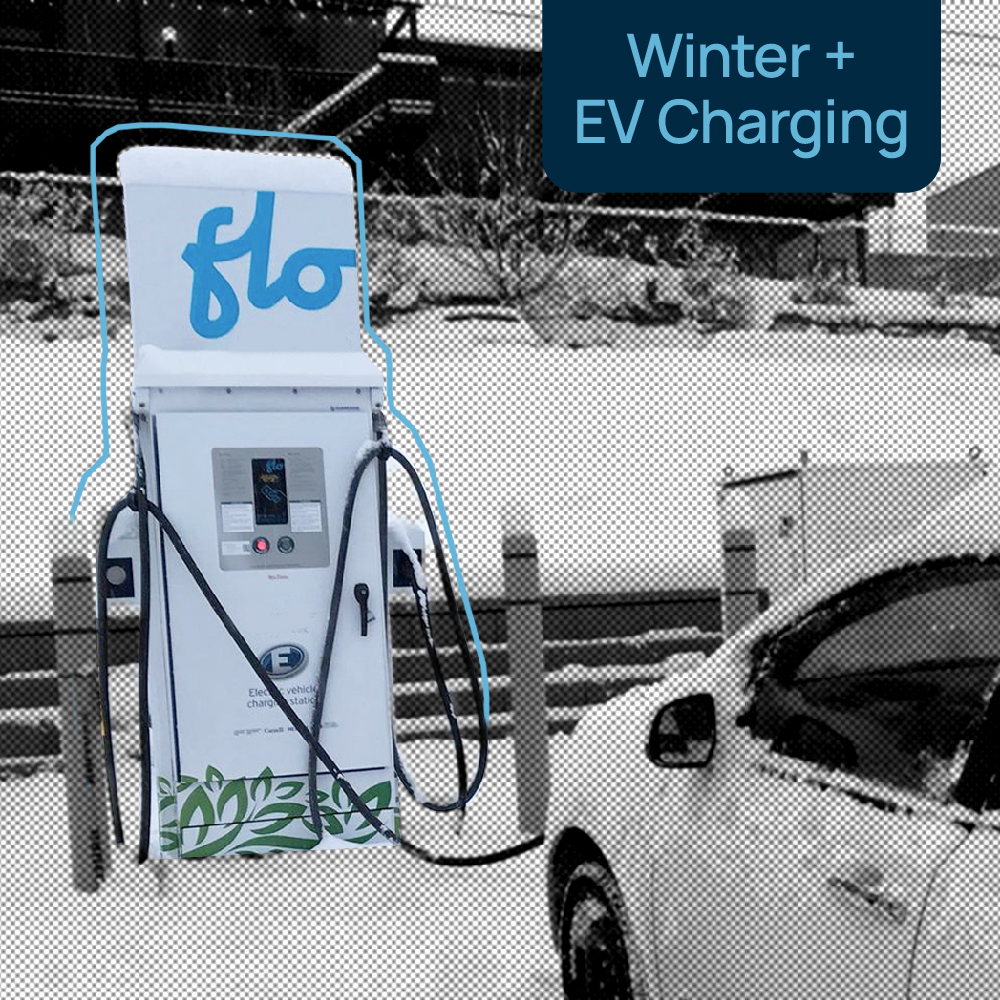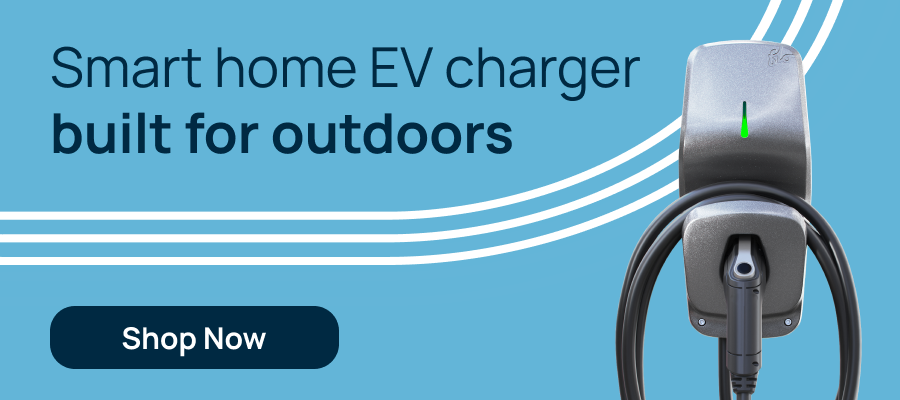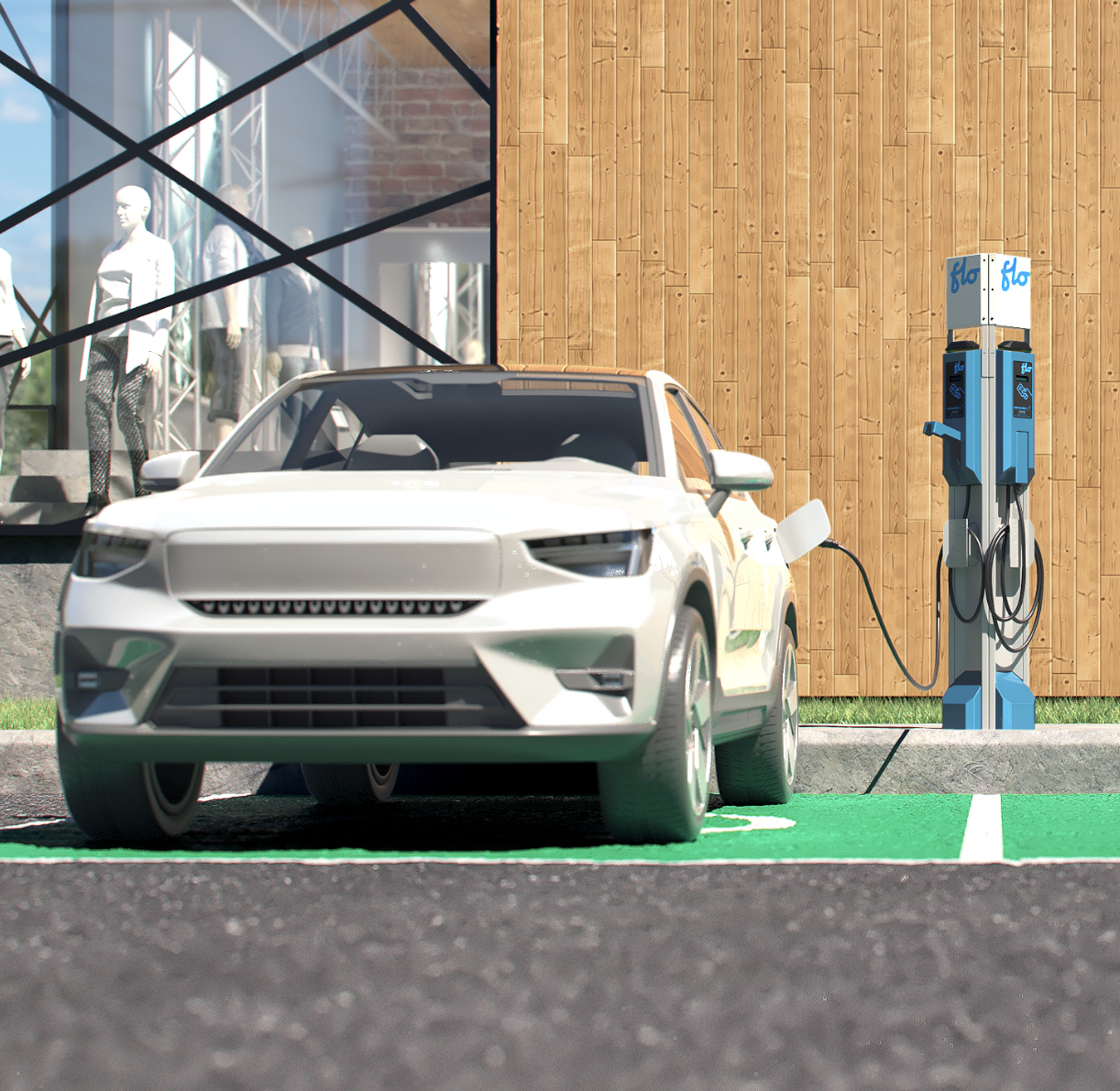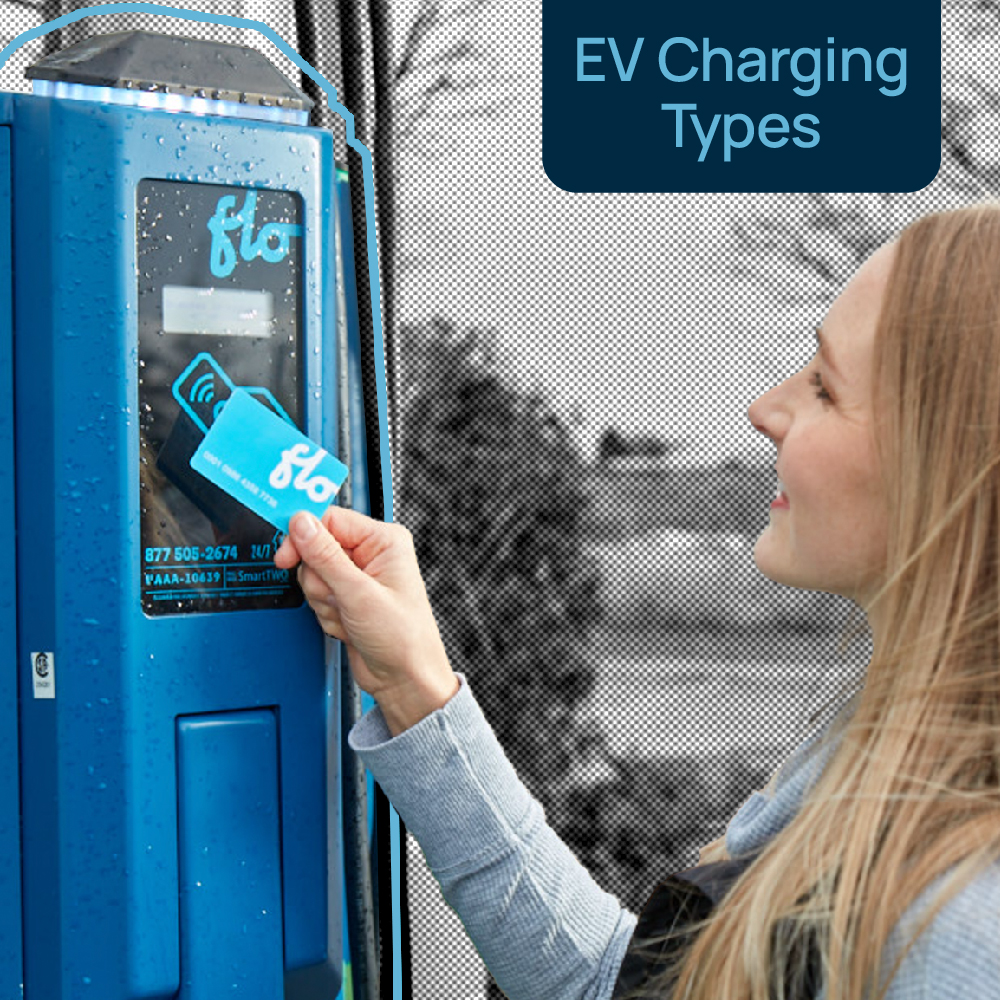Driving, charging and protecting electric cars in winter
Being based in North America, FLO is no stranger to the cold. We know winter well, and we’ve been developing and installing charging stations for electric vehicles in cold weather destinations like Quebec and Alaska for over a decade, so our chargers are built to withstand harsh climates. While we know it’s a great fit, we still meet people who worry that EVs and electric car charging in cold weather aren’t practical. Let’s clear it out!
Do electric cars work in cold weather? You bet. Does cold weather affect electric cars, EV charging and EV batteries? Yes, yes and yes, but it’s a matter of EV drivers knowing their car and being prepared for the unique challenges that come with driving electric vehicles in cold climates. Don’t let the chill of winter put a damper on your driving experience! Keep reading to find out more.
Will I lose a lot of EV range in cold weather?
Winter can affect EV battery performance in cold weather and how far you can go on a single charge, mostly because of the need to control your car’s temperature. How do electric cars make heat? Unlike internal combustion engine (ICE) vehicles whose engines produce heat, EVs have to generate their own warmth for the cabin using energy from the battery—energy that would otherwise be used to propel the car.
Reduced performance in winter is nothing new—even for gas cars; it’s recommended to drive with at least half a tank in winter. Cold weather does lower the range, but that varies by model, driving habits, and temperature. The latest models have high autonomy and many include more efficient heat pumps that use less energy, so daily commutes aren’t an issue, especially if you plan your trips and play it safe when it comes to EV charging in cold weather.
Pro tips:
- Be ready for anything by always planning for double the energy you actually need. If you’re driving 50 km, be sure to have at least 100 km of range. This doesn’t mean you’ll lose half your range in cold weather; it’s just smart planning.
- When it’s really cold out (we’re talking -20°C or -4°F), preheat your EV. Plug it in and warm it up before hitting the road. Not only will you save battery power, you’ll also use energy from the grid instead. (Speaking of which, are EVs a threat to the grid? Listen to our podcast to find out.)
- Save even more energy by swapping cabin heaters for heated seats and steering wheels.
- When looking for a new EV, ask about efficient heating options like heat pumps.
Do electric cars charge slower in cold weather?
The speed of EV charging in winter will likely slow down because of the impact of cold weather on your car’s charging system. For example, some EV charger types – especially DC fast charging stations – may experience a decrease in charging speed because the battery temperature isn’t optimal for charging. This isn’t due to the charging station itself, but rather the communication between the charger and the car. If the battery is too cold, the car will request a slower rate to the charging station to avoid damaging the battery.
Sure, fast charging may be slower in winter, but you likely won’t even notice a difference with level 2 charging at home or when you’re charging for longer periods. Your battery will have time to warm up and reach a full charge while you’re sound asleep. However, you may see more power being delivered to the car to keep the battery warm, but it’ll still be charged by morning.
Pro tips:
- Plug in your EV right after driving, when the battery is still warm, to optimize charging speed.
- Plan journeys ahead with an app (like ours) to find charging stations on your way, and keep in mind sessions can take a bit longer than during warmer months.
Can it be too cold to charge an EV?
As long as snow and ice are cleared from the charging station, especially the connector and socket, you can expect it to work. Our charging stations have been tested in temperatures ranging from -40°C/°F to 50°C or 122°F.
If your battery is frozen (if you’ve left your car out for a while without using it in freezing temperatures), it might need to warm up a bit once you plug it in before it actually starts charging.
Pro tip: At home, If you are expecting cold weather and have a garage, consider heating it and if your station is outside, try covering it if you’re worried about ice. But know that your FLO Home unit can still be exposed to the elements without a problem. Its aluminum casing and industrial grade cable are built to last.
What should I do if my connector or charging port door is frozen?
It’s rare for a charging connector to get stuck in the charging port of an EV, since the port’s seal is meant to prevent that. However, if you leave the charging port door open and the connector plugged in for a long time in bad conditions, ice could form and make it harder to unplug.
Check your car or your EV charging station’s manual for advice on how to deal with a frozen charging port door or connector. Luckily, if you have a FLO charging station, it likely won’t happen to you, as our products are all built to offer a seamless experience in harsh climates.
Still asking yourself, “do electric cars work well in cold weather?”
The answer is yes, with a minor inconvenience: the increase in energy consumption during colder months could mean stopping longer at fast charging stations, stopping sooner on road trips and planning for more range than needed. As technology improves, so will the impact of cold weather on EVs. Winter or summer, you can keep driving electric with peace of mind!
For the ultimate in convenience, check out our FLO Home line. Our FLO Home X5 charger even offers smart features allowing you to monitor your charge from the warmth and comfort of your home.

